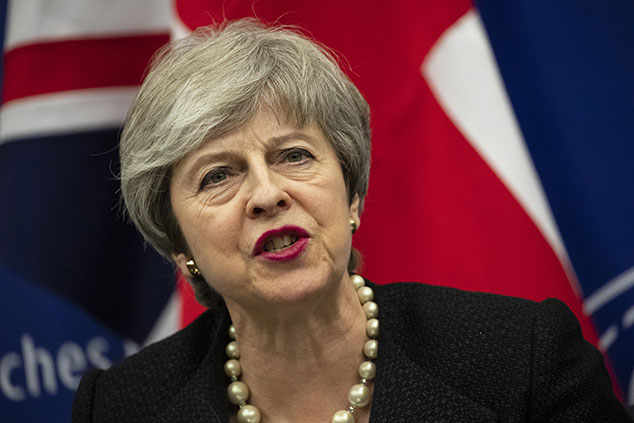
This article is taken from our FREE daily investment email Money Morning.
Every day, MoneyWeek’s executive editor John Stepek and guest contributors explain how current economic and political developments are affecting the markets and your wealth, and give you pointers on how you can profit.
Prime minister Theresa May has come back from the EU with yet more pieces of paper.
She’s facing a vote later today.
The idea is that the changes might be able to sneak her Brexit withdrawal agreement over the line.
What are the chances? And what does it mean for your money?
What’s changed?
The sticking point in May’s withdrawal agreement is the “backstop”. This is designed to make sure that there is no need for a “hard” border between Ireland and Northern Ireland.
The thing that worries Brexiteers is that the backstop could end up keeping Britain tied to the EU pretty much permanently.
Everyone involved in the talks keeps saying that it won’t. But understandably, trust is in short supply, and interpretations seem to differ across the board. So no one is keen to take reassurances at face value.
So now May has come back from Strasbourg with some changes in wording to make it clear that a) the EU will not deliberately try to keep Britain in the backstop; b) that the UK and EU will try to work on technologies to replace the backstop requirement by the end of next year; and c) for Britain to have the option to launch a procedure to exit the backstop unilaterally if the EU doesn’t act in good faith.
Will this do it? Well, we don’t have long to wait to find out. We’ll be getting a vote on it this afternoon.
There seems to be a view in the markets that it has a chance. But I have to say, May has a mountain to climb.
I’m no game theorist, but let’s quickly try to analyse this in terms of incentives.
When it comes to the pro-Brexit faction (the DUP and the Tory leavers), the risk is that if they don’t vote for this deal, then whatever we end up with will be a far “softer” Brexit or no Brexit at all.
Yet they might also think that if they knock this deal back, they might just keep the prospect of a “no deal” Brexit alive. And on that front, markets might be too complacent about the odds of simply reaching 29 March and falling out of the EU with no deal at all.
As far as Labour goes – the party might be divided, but they’re still opposition politicians – they would rather force a general election one way or another (and the pro-Corbynites wouldn’t mind a “no-deal” Brexit anyway, while The Independent Group are pro-second referendum), and voting against the deal is the easiest immediate way to push that goal along.
In other words, there’s everything to play for, and if idealism and striking heroic poses trumps realism and compromise, this deal could easily get blown out of the water.
What’ll happen if the deal doesn’t get through?
You shouldn’t be taking short-term bets on the pound right now – it’s way too volatile. But if the deal passes, expect a big bounce. If it fails by a small margin, there might still be a bounce – if investors see signs that the two sides are coming closer together, they might assume it’s a done deal.
But if it gets a big knock back again, I think we’ll probably see a sell-off in the pound as investors start to worry that this genuinely is stalemate.
My gut feeling (which could be entirely wrong, I’m only even bringing it up because I’ve already said you shouldn’t be making short-term bets on this) is that this won’t pass, and that in fact, it probably won’t even be that close.
Equally, however, I don’t think we’ll end up with a “no deal/clean” Brexit. The EU will talk tough on deadlines (that’s what happens in negotiations, particularly as you get closer to the wire – remember Greece), but if it’s clear that parliament has its heart set on a softer Brexit or a permanent delay, then the wiggle room will be there.
In short, I still think that if this deal doesn’t pass, we’ll get something like it sooner or later, or no Brexit at all.
All of this matters from a political point of view. Whatever outcome we get will be unsatisfying for most voters. Some would argue that this is perhaps the point of democracy.
But from an investment point of view, the market doesn’t care whether you’re a dyed-in-the-wool Brexiteer or an advocate of Britain joining the euro – all that really matters is what’s in the price.
And from that perspective, one way or another, UK assets are still among the cheaper ones in the world. Indeed, I noticed this morning that at the end of January, the UK had nearly dipped into the top ten cheapest markets as judged by our favourite, the Cape ratio, according to StarCapital.
So I’m still happy with the idea that should you be looking to invest more money right now, putting some of that money in the UK, perhaps a bit more than you normally would, makes sense.
John’s book, The Sceptical Investor, is out now – get your copy here!